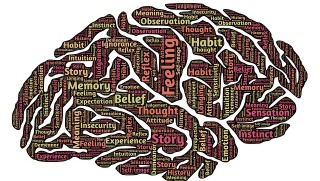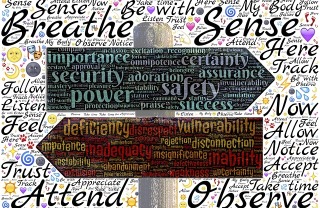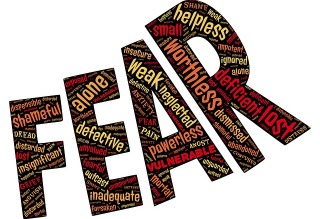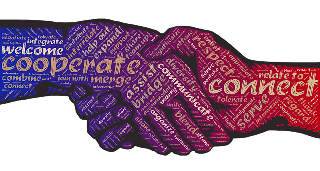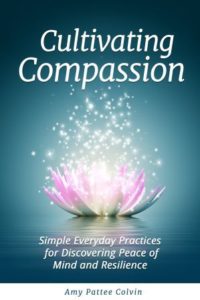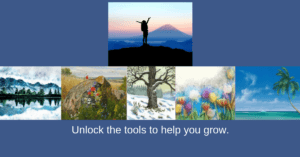How to Maintain Hope in Troubled Times
A friend recently asked me, if I could offer any quick and practical suggestions for how to maintain hope during troubled times — times of polarized politics, international uncertainty, and when determining if news stories are true or false becomes difficult. She said she was beside herself with overwhelm and stress, and knew that I’d published a book on compassion.
The answer to her question can be complicated but in keeping with her request for quick suggestions I wanted to share these ideas.
1) Choose to manage or control what occupies your mind.
Managing our mind may sound overly simple, but at the most basic level, we DO have a choice over our minds. We really CAN choose to control what stories spin in our brains.
However, choosing to control what occupies our minds takes patience, courage, and practice.
Often it is easier to let our mind run wild rather than reining it in.
Think about it, how often do you let your mind run wild? We all do it. We all come up with stories about the future. We all ruminate about the past. However, we do have a choice about how long we let those stories run.
When we hear reports on the news about another shooting, another bombing, or another investigation it is easy to become overwhelmed. But, we also need to continue living our lives, doing things in this present moment to help ourselves, our families and friends, and communities. We can’t afford to let overwhelm and distress bog us down, as that does not serve anyone.
The next time you’re feeling overwhelmed, observe the choices you’re making at the moment.
Noticing these choices brings you into present moment awareness. Present moment awareness helps prevent ruminating about the past or worrying about the future. This infographic on the five elements of meditation offers easy to use tips for settling your mind.
If you are motivated to and can actively create positive change, by all means, act — send postcards, make calls, go on marches! But if what troubles you is elsewhere, and you can’t do anything but think or theorize about an event, consider shifting your mindset to something that is positive and productive right where you are.
2) Pay attention to your breath
Now that you’ve chosen to rein in your wild mind turn your attention to your breath. Try this breathing exercise as a way to slow down your breath, slow down your thoughts, and connect with your body.
- Inhale slowly, all the way into your belly, for a count of four.
- Gently hold your breath for a count of four.
- Exhale fully for a count of four.
- Gently hold the exhale for a count of four.
Repeat the process a few times. Sometimes something as simple as connecting to your breath and body in the present moment is enough to break a cycle of distressful thinking. This technique is also beneficial for dealing with stress. For example, if a conversation is becoming overheated, or if you’ve just received some distressing news but you’re not in the right place to sit with it, try this breathing technique.
3) Consider the idea that unskillful behavior comes from unmet needs
When we hear of tragic events such as mass shootings, bombings, or ongoing legislative uncertainty, it can be easy to direct our ire to what we perceive to be the cause of the problem.
Often the last thing we want to do is extend compassion to the person or people that have wrought havoc on the lives of many.
However, what would it feel like to consider that the ones committing crimes were people too?
They all have parents (in one form or another); they all have friends (of one sort or another); they’re all human beings. Somehow, at some point something caused them to decide that harming others was the right course of action.
But, we don’t know their back-story. We don’t know what their daily life is like. We don’t know if they needed love, security, food, role-models, training, or anything else to help them make different choices. Sometimes the worst decisions arise because people are afraid, hurt, hungry, or lonely.
I’m not saying that harmful unskillful actions are just. I am saying that perhaps we can come to some sort of internal peace if we recognize that each of these individuals is human, and as such we share a common link.
Often extending compassion to another, even if we don’t know that person directly, can help us move into a place of peace. Perhaps it can help us move from being beside ourselves with grief and outrage, to a place of uncomfortable acceptance.
4) Move beyond empathy to compassion
Compassion combines:
- Awareness—acknowledging distress in yourself or others;
- Empathy—being emotionally moved by this distress;
- Action—enacting a response, which could involve some sort of physical activity, or it could be as subtle as mentally/intentionally sending someone well-wishes.
Sometimes when we get stuck in that place of overwhelm or grief, it is because we’ve stopped at the second step, empathy. With empathy I “feel your pain,” and sometimes I get stuck right there with you.
With compassion, we move beyond that stage of empathy and take action.
Taking action allows us to move through that stuck place of distress. Honestly, the action can be as simple as intentionally wishing someone well. Bring to mind an image of someone in trouble. Open your heart to the idea of compassionate action. Take some slow deep breaths, and with each exhalation imagine sending peace, love, kindness, support, compassion to the one you’re holding in mind.
Want more ideas for maintaining hope?
This post covers only a few quick and practical ideas for shifting from distress to hope. Making a permanent change takes courage, patience, and continual practice.
Dive deeper into these concepts and more in the Cultivating Mindful Compassion course. Or fully immerse yourself in an international spiritual tour.
For daily inspiration pick up a copy of Cultivating Compassion: Simple Everyday Practices for Discovering Peace of Mind and Resilience.
And, meditation is a simple, great place to start. This is a great article on how to meditate for beginners.


